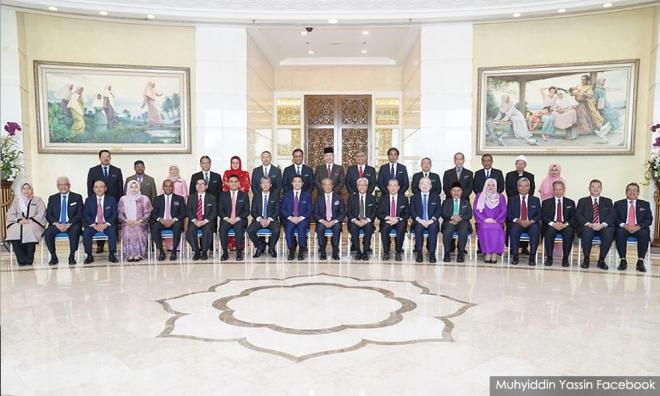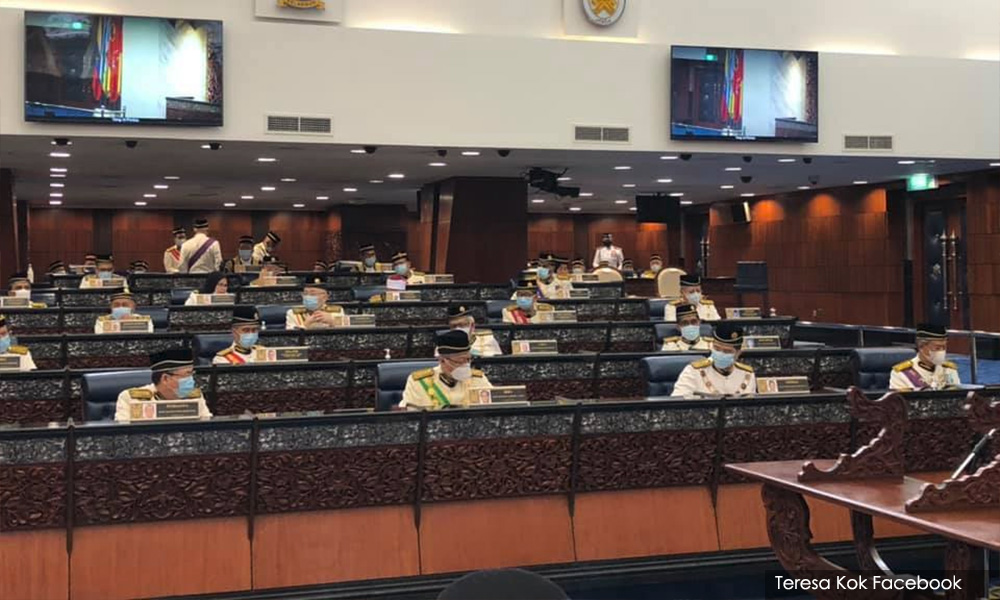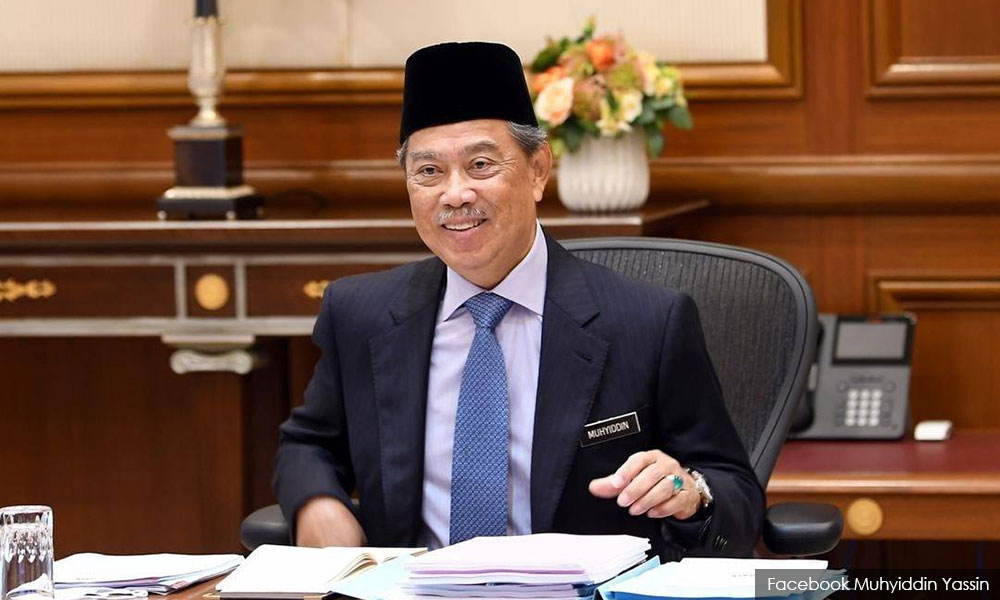
MP SPEAKS | I refer to Jacqueline Ann Surin’s article, “Is the opposition living in the 14th century too?” published in Malaysiakini on June 2, 2020. Jacqueline has castigated the Pakatan Harapan select committee chairpersons for not holding inquiries after the change of government to thwart Muhyiddin Yassin and revitalise Parliament.
The thrust of Jacqueline’s argument is that the eight Pakatan Harapan chairpersons are still holding their positions and can carry out their functions without waiting for Parliament to be in session. She argues they should do so before they are replaced when Parliament sits on July 13.
There are three reasons the Harapan chairpersons cannot act to thwart Muhyiddin, as suggested by Jacqueline.
The first reason is that the standing and authority for the Harapan select committee chairpersons to hold meetings and conduct inquiries ceased immediately upon the change of government. The positions, standing and authority of the chairpersons and members in the select committees are based on whether the MPs are from the government or opposition.
Following the collapse of the Pakatan Harapan government, the Leader of the House and the Leader of the Opposition changed, pursuant to Standing Order (“SO”) 4A (2) and (3). Under SO 4A (2), the Leader of the House is the Leader of the Government while under SO 4A (3) the Leader of the Opposition is the leader of the group in the Opposition.
Thus, Muhyiddin became the Leader of the House upon his appointment as Prime Minister and Anwar Ibrahim became the Leader of the Opposition. The Perikatan Nasional (PN) MPs became government MPs and Harapan MPs became the opposition on March 1, 2020.
SO 82(1) provides that the members of the select committees are based on a formula to reflect the composition of the Dewan Rakyat as a whole.

The concept that the members of the select committees must reflect the composition of the House is fundamental. A select committee represents a delegated version of the House. They are emanations of the House. Therefore, the chairpersons of the select committees must be government MPs, except for committees such as the Public Accounts Committee (PAC), where the chairperson is from the opposition to further the interest of accountability. This also means the majority of the members in each select committee must be government MPs.
With the change of government, although the select committees continue to exist, the chairpersons and the membership must be reconstituted to reflect the new composition of the House. The Harapan MPs ceased to have the standing to exercise the powers and authority as the select committee chairpersons or members as they are no longer government MPs.
When Beluran MP Ronald Kiandee switched from Umno to become an independent before joining Bersatu, Harapan criticised Dr Mahathir Mohamad for maintaining Kiandee as PAC chairperson, since Kiandee had ceased to be an opposition MP. Now that the shoe is on the other foot, it will be wrong, if not hypocritical, for Harapan select committee chairpersons and members to insist on holding to their positions and exercising authority when they are no longer government MPs.
The second reason, Harapan chairpersons cannot act to thwart Muhyiddin as suggested, is that the select committees do not have powers to determine the validity of Muhyiddin’s appointment as prime minister by carrying out a forensic investigation as to whether Muhyiddin has or does not have the support of at least 112 MPs.

The appointment of the prime minister is not dependent on the arithmetical calculation of the number of MPs supporting Muhyiddin (above). The appointment of the prime minister is made by the Yang di-Pertuan Agong in the exercise of a discretion expressly conferred by Article 40(2)(a) and of his judgment under Article 43(2)(a) of the Federal Constitution.
Under Article 43(2)(a), the Yang di-Pertuan Agong is to appoint a Member of Parliament who, the Agong, by acting “in his judgment is likely to command the confidence of the majority of the members of the House,” as the prime minister.
Therefore, the select committees cannot question the exercise of the Agong’s discretion and judgment by investigating whether Muhyiddin had the support of the majority of the MPs on March 1, 2020. The select committees will be overreaching their jurisdiction and powers if they are to do so.
The third reason the Pakatan Harapan select committee chairpersons cannot act as suggested is that the select committees’ powers to summon the attendance of witnesses, summon production of documents and collect evidence, although wide, are not unlimited or unfettered.
A select committee possesses no authority, except those derived from the House appointing it, or statutory powers bestowed for the purposes of specific legislation, or provided by the Standing Orders issued pursuant to Article 62 of the Federal Constitution and the select committee’s terms of reference.
A select committee cannot go on a frolic
The select committee cannot go on a frolic of its own to investigate whether Muhyiddin enjoys the confidence of the majority of the MPs, as this is not within its terms of reference. If the select committee acts without authority, it cannot compel witnesses to attend or to produce documents and would also not be able to provide immunity to the witnesses against action by third parties. The inquiry will be a non-starter.
It must be emphasised that whether Muhyiddin can remain as prime minister is a different matter from his appointment by the Agong. He is required to resign or to request the Agong to dissolve Parliament under Article 43(4), if he ceases to command the confidence of the majority of the members of the Dewan Rakyat.
This is to be done by passing a motion of no confidence, the defeat of a supply bill or failure to secure the approval of its legislation or by other means. Unfortunately, it cannot be done through a select committee investigation.
The importance and usefulness of select committees are derived from their ability to work as cross-party teams to scrutinise and hold the government, agencies and businesses to account, provide information to the public and allow public participation in the democratic processes. This is only possible where there are trust and confidence that the investigation is non-partisan driven or non-ideologically driven.
It is not intended and the purpose of select committees will not be achieved if the select committees consist of opposition members bent on challenging the executive government.
The parliamentary reforms and activities of the select committees in Malaysia are still in their infancy. It will be a shame if their growth and usefulness are stunned by chairpersons embarking upon a partisan venture which the select committees are not designed to perform, however sincere the chairpersons’ intentions may be.
An illegitimate government cannot be ousted by the illegitimate use of select committees.
WILLIAM LEONG JEE KEEN is the Member of Parliament for Selayang. - Mkini



No comments:
Post a Comment
Note: Only a member of this blog may post a comment.